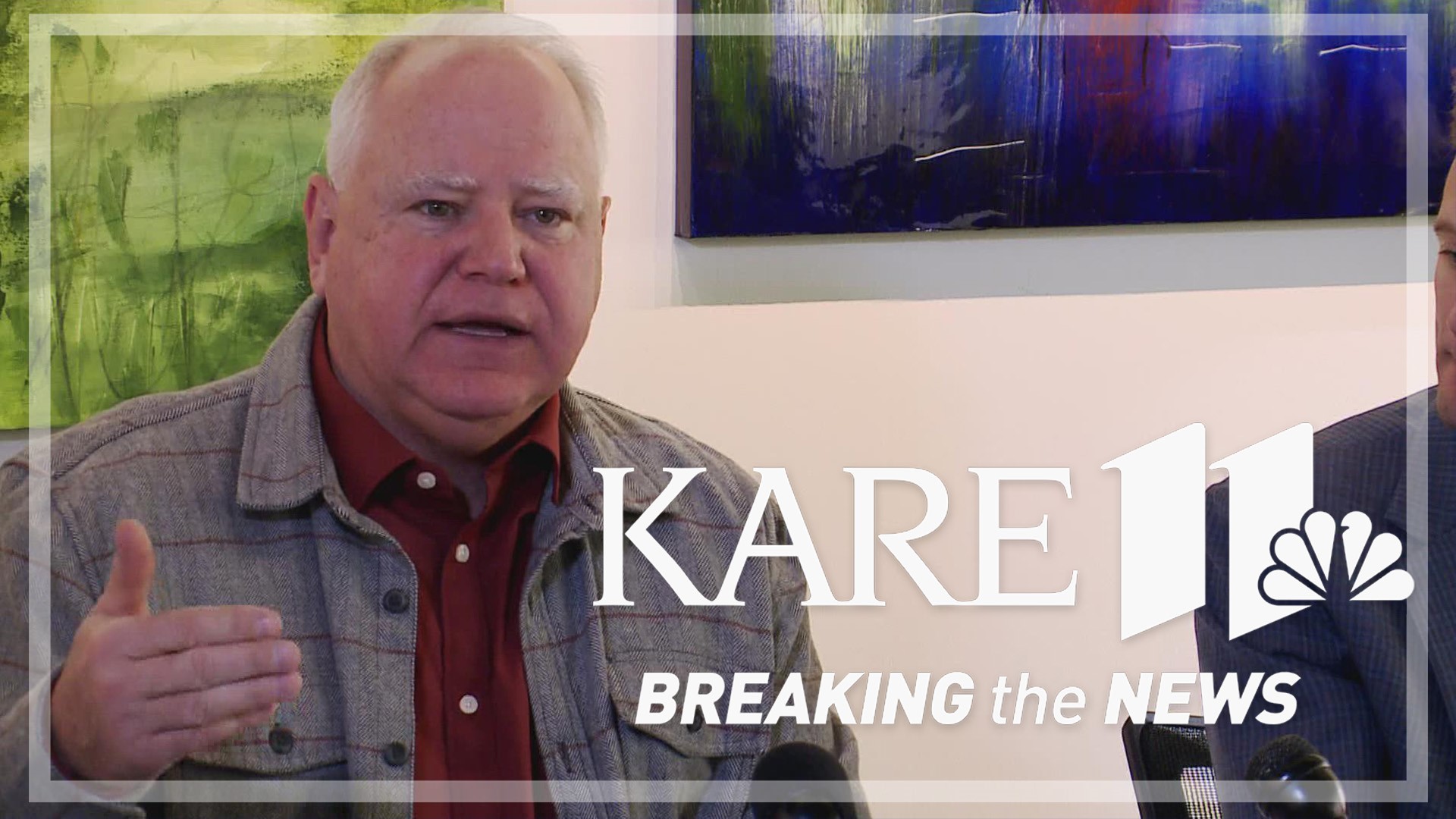MINNEAPOLIS — Governor Tim Walz says he is hoping to do what he can to help avoid a second nursing strike at a time when hospitals across the state are already struggling to keep up with an influx of patients with respiratory illnesses.
"It is a challenge right now," Walz said. "It's a challenge on staffing, it's a challenge on bed space, and we're not underestimating the impact that this will have. My first and foremost concern is the safety and the ability — as it was during COVID — for a Minnesotan, if they need care and they need a hospital bed, that there is one available and that they get it with the staff to be there. But we're also concerned about protecting the needs of the staff that are there. We already know this is a very difficult profession, we don't want to lose people in that, so this negotiation is critically important."
Walz addressed the potential strike while taking questions from reporters on Thursday morning, just hours after the Minnesota Nurses Association (MNA) announced that 15,000 nurses had authorized a second strike.
The first strike, which occurred in September, lasted just three days, but the MNA says a second strike would begin on Dec. 11. It would last three weeks in the Twin Cities, and even longer in northern Minnesota.
"We're in a more serious situation now," said David Larson, a professor at Mitchell Hamline School of law and senior fellow for the Dispute Resolution Institute.
Professor Larson says the governor has limited options to help broker a deal. Unlike the ongoing labor dispute involving federal rail workers, which allows the President and Congress to intervene due to the potential for a national emergency, Larson says the proposed nursing strike doesn't
"The Governor can try to intervene but doesn't have the same kind of power to enjoin anything that's going to happen," Larson said. "But that doesn't mean you can't have some influence."
Former Minnesota Governor Mark Dayton exerted his influence during a second nurses strike between Allina and its nurses in 2016. Mediation at the governor's mansion helped the two sides come to a compromise.
"We definitely are there again, that we need intervention," he said. "And it looks like Governor Walz is willing to do that. He does not have a lot of time to operate, just a little over a week."
Larson says there are signs of hope, the biggest bright spot being that nurses and hospitals are now about six percentage points apart on pay.
"So now, they're really within range of reaching an agreement," Larson said. "That's promising, but the thing that is going to be problematic is staffing."
And because neither side can fix the shortage of nurses right now, Larson says it might take the governor to help them find common ground before it's too late.
"We're engaged, and have been, with both of these entities," Walz said. "So we're hopeful. We're still in a process. The collective bargaining process is still working. This is an order of intent to strike, it is not a strike, so there is time here and there's work to be done."
Watch more Breaking The News:
Watch all of the latest stories from Breaking The News in our YouTube playlist:

